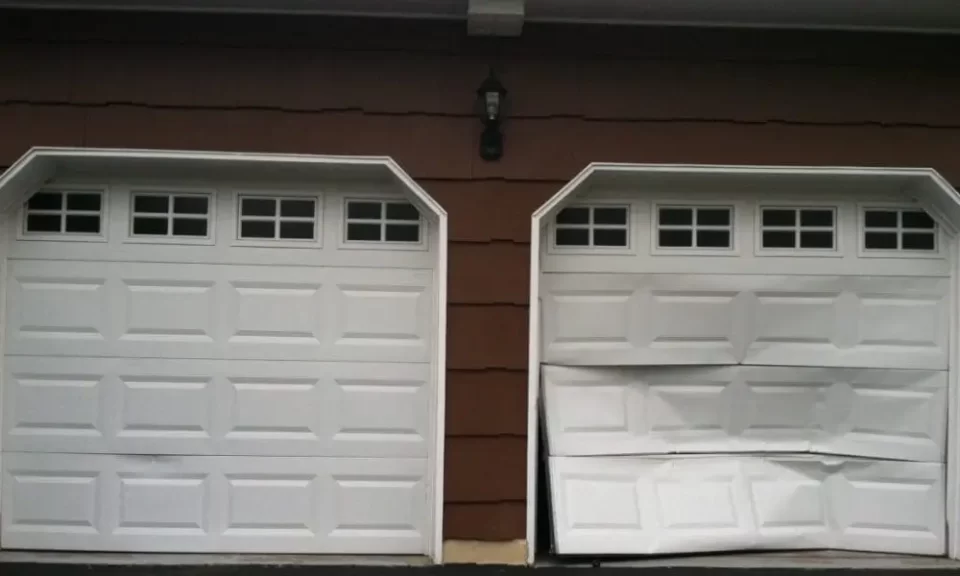Garage doors are the hardest working components of your home. It goes up and down multiple times a day, year after year. With such frequent operation and exposure to the elements, it’s no surprise that garage doors run into problems. Ignoring garage door issues leads to further damage, costly repairs, and safety hazards.
Door is stuck or won’t open
If your garage door refuses to open or is stuck partway, don’t force it. Forcing a stuck garage door causes further damage to the door and the opener mechanism. There could be an issue with the springs, cables, rollers, or opener that requires expert inspection and repair.
Jerky or noisy operation
While all garage doors make some noise when operating, excessive grinding, squeaking, or jerky movements are red flags. These noises often indicate a problem with the rollers, pulleys, hinges, or opener gears that require lubrication or replacement by a professional.
Door doesn’t close completely
If your garage door fails to close, it could be due to misaligned sensors, a broken cable or spring, or an issue with the opener’s logic board. Leaving the door partially open invites intruders and pests, so you’ll want it repaired promptly.
Gaps between the door and framing
Gaps around your garage door’s sides, top, or bottom allow heat/AC loss, moisture, pests, and debris to enter. These gaps may indicate problems with the door alignment, rollers, hinges, seal(s), or the frame that require adjustment or repair check more info here ashburngaragedoorsrepair.us.
Sagging garage door
If your garage door sags or looks uneven when opening/closing, it’s a sign that the springs or cables are wearing out or broken. Springs and cables do a lot of heavy lifting and worn/damaged components cause the door to crash down, creating a significant safety hazard.
Door reverses when opening/closing
While auto-reverse capabilities are an essential safety feature, a door that reverses too quickly could indicate an opener sensor issue, spring problems, or an unbalanced door. These issues need prompt repair to prevent damage or injuries.
Garage door opener makes strange sounds
If your garage door opener is making buzzing, grinding, or whirring noises out of the ordinary, it’s likely due to a mechanical or electrical issue inside the motor unit itself. The opener may need repair or outright replacement.
Visible signs of wear and tear
Cracks, dents, warping, rust, and other signs of wear on your garage door panels could indicate advanced deterioration and should be evaluated by a professional repair tech who advises on repair or replacement options.
Problems with the remote control
If your garage door remote isn’t working or has a significantly reduced range, it’s time to replace the batteries. However, if changing the batteries doesn’t help, the remote itself or receiver on the opener may need reprogramming or replacement.
Door seems old and outdated
Even if your garage door isn’t exhibiting any significant operational issues, continued use over many years takes its toll. Springs wear out, rollers deteriorate, and openers fail, leading to breakdowns. If your door is over 10-15 years old, consider calling in a pro for an upgrade to a newer, safer, and more energy-efficient model.

